Do you find it challenging to accomplish tasks? Does procrastination seem to be your constant companion? Well, you might be wondering, “Is procrastination a sign of depression in my life?”
There could be a deeper connection behind these signs of procrastination worth exploring.
Do you ever find yourself stuck in an endless loop of procrastination, where tasks pile up and motivation dwindles? If so, you’re not alone.
In this article, we will discuss the probable link between depression and procrastination and how to cope with it.
Read more here: Why We Procrastinate And How To Take Advantage Of It
Is Procrastination A Sign Of Depression?
Have you ever wondered, is procrastination a sign of depression? Procrastination can be far more than just a simple case of delay tactics; it can be a telling sign of a deeper issue – depression.
Unraveling the connection between procrastination and depression can shed light on the root causes behind your avoidance behavior.
Let’s delve into this fascinating link and explore the subtle procrastination symptoms that might be signaling an underlying struggle with depression.
Read more here: Why We Procrastinate and 6 Things We Can Do About It
4 Signs Of Procrastination Because Of Depression
If you find yourself repeatedly delaying tasks and struggling to muster the motivation to get things done, here are four crucial signs that could be pointing to the influence of depression on your procrastination habits.
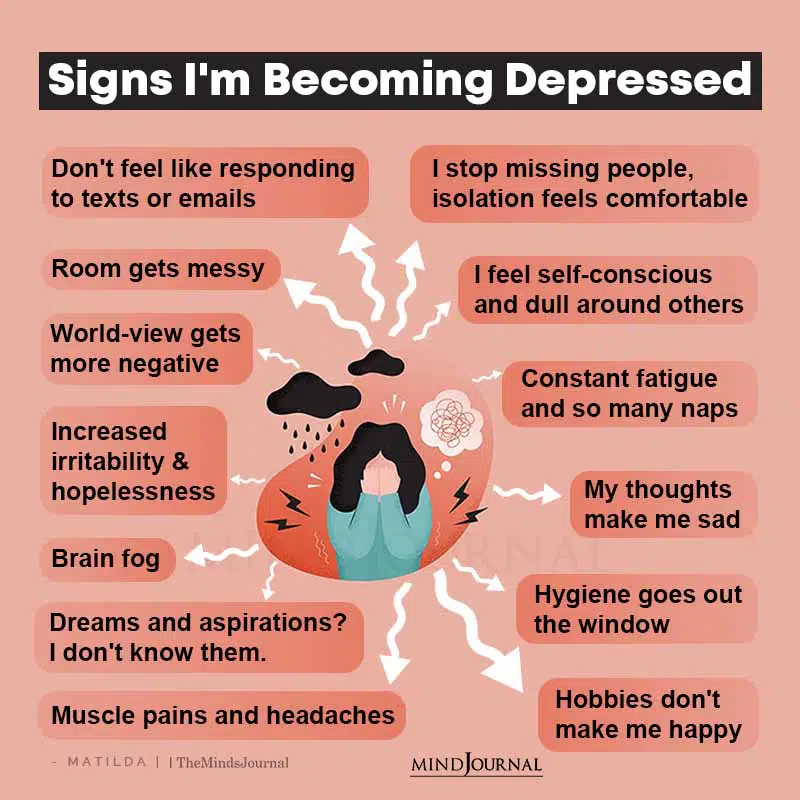
1. Your To-Do List Grows Endlessly, Yet You Can’t Seem To Start
You wake up each morning with a to-do list that’s as long as your arm, but as the day progresses, you find yourself accomplishing very little.
Your motivation is at an all-time low, and even simple tasks feel like mountains to climb. You might be tempted to believe that laziness is to blame, but it could be a sign that depression and procrastination are interwoven in your life.
2. Escaping Into Time-Wasting Activities
Do you often find yourself mindlessly scrolling through social media for hours or binge-watching TV shows to avoid facing your responsibilities?
When depression and procrastination take the reins, you might unknowingly seek refuge in these distractions, as they temporarily numb the overwhelming emotions that come with the weight of unfinished tasks.
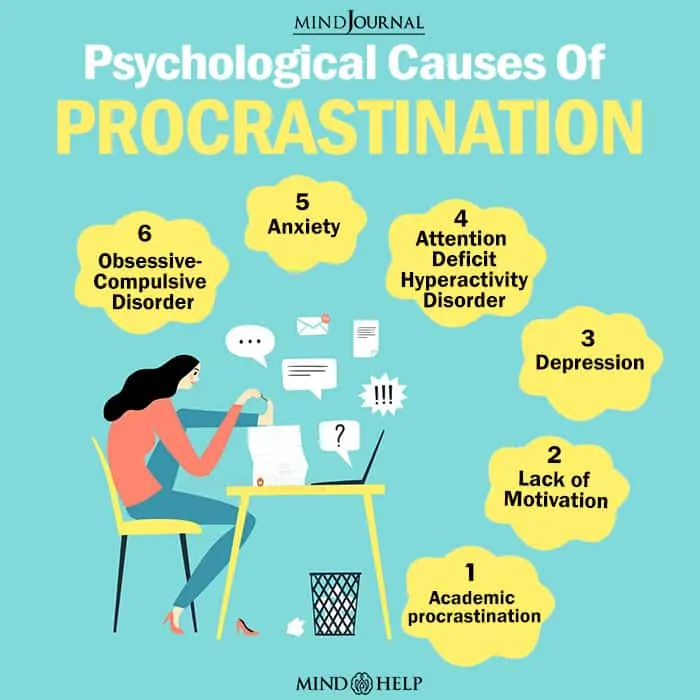
3. Guilt And Self-Criticism Fuel The Cycle
As your to-do list remains untouched, guilt and self-criticism start creeping in. You berate yourself for not being productive enough, adding more emotional burden to an already heavy load.
This vicious cycle can perpetuate the connection between procrastination and depression, making it harder to break free.
4. Your Procrastination Leads You To Isolation
Have you noticed yourself withdrawing from social interactions and engagements that you once enjoyed?
Depression and procrastination often team up to create a double-edged sword. Procrastination isolates you from the world, and that isolation, in turn, feeds into depression.
Breaking free from this cycle requires a compassionate understanding of yourself and seeking support from others.
Read more here: Understanding And Overcoming Procrastination
Recognizing And Addressing The Connection
If you find yourself nodding along to these signs of procrastination, remember that procrastination symptoms can often be a sign of underlying depression.
Acknowledging this connection is a crucial step towards healing and regaining control of your life.
Here are a few tips to help you get started on the path to overcoming depression-related procrastination:
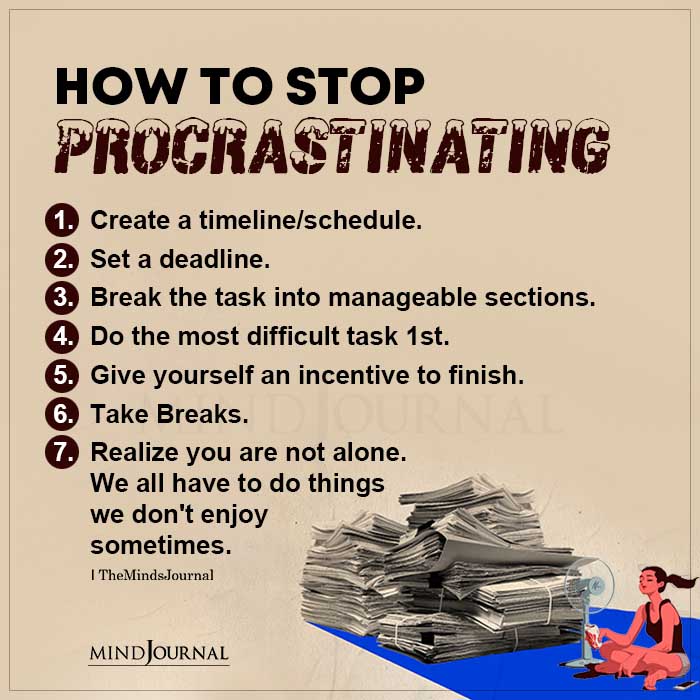
Seek Professional Help: Reach out to a mental health professional who can provide you with the necessary support, guidance, and coping strategies to deal with depression and its impact on procrastination.
Break Tasks into Smaller Steps: Instead of overwhelming yourself with an extensive to-do list, break tasks into smaller, more manageable steps.
Practice Self-Compassion: Be kind to yourself. Understand that depression is a genuine challenge, and overcoming it takes time and effort. Celebrate even the smallest victories and avoid harsh self-criticism.
Reach Out to Your Support System: Share your struggles with trusted friends, family members, or support groups. Talking about your experiences can help you feel less isolated and offer you valuable perspectives and encouragement.
Remember, procrastination is a sign of an underlying issue, and addressing the root cause, such as depression, is essential to breaking free from this cycle.
By recognizing that procrastination symptoms can be indicative of a more profound struggle with mental health, you’ve already taken an important step toward understanding and healing.
The next time you find yourself postponing tasks or feeling burdened by an avalanche of to-dos, take a moment to ask yourself, “Is procrastination a sign of depression in my life?”
By acknowledging this connection, you can begin the journey to address both procrastination and its underlying causes.
Can depression really cause procrastination?
Yes, depression can indeed lead to procrastination. When individuals experience low mood, lack of energy, and feelings of hopelessness, they may find it challenging to initiate and complete tasks, resulting in a cycle of procrastination.
Is procrastination a sign of a mental health issue?
Procrastination can be a potential indicator of an underlying mental health concern, such as depression. It is essential to recognize the connection and seek appropriate support to address both the procrastination and the underlying issues.
How can one differentiate between regular procrastination and depression-related procrastination?
While both types of procrastination involve delaying tasks, depression-related procrastination often includes sadness, worthlessness, and a decline in motivation. If negative emotions persist, consider depression as a contributing factor.
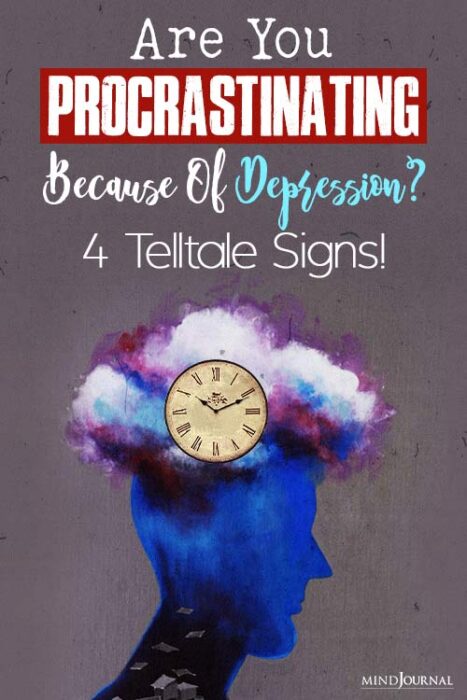
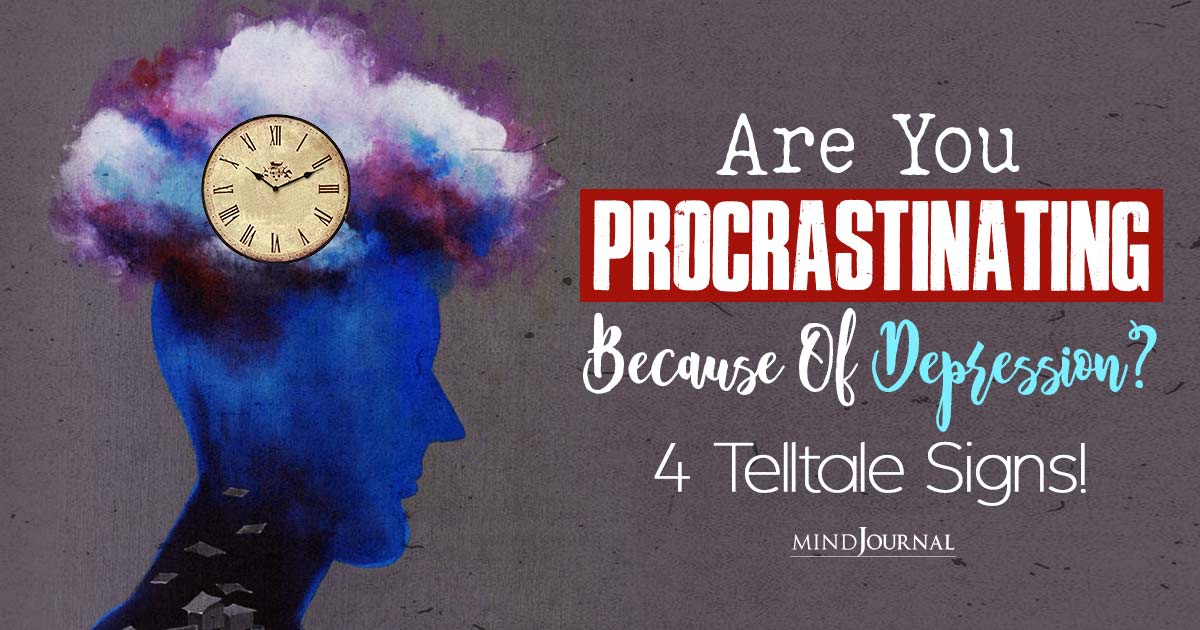







Leave a Reply
You must be logged in to post a comment.